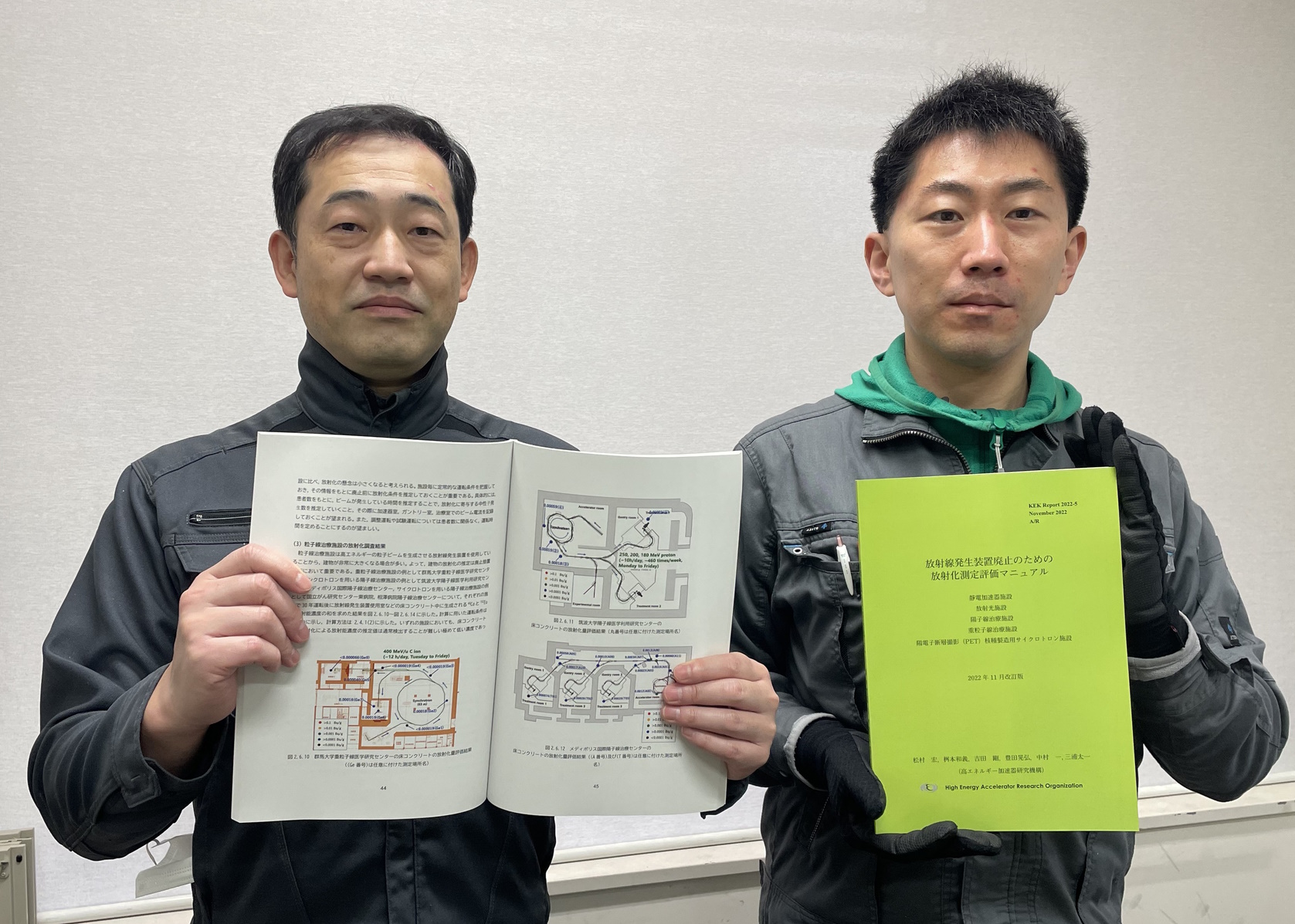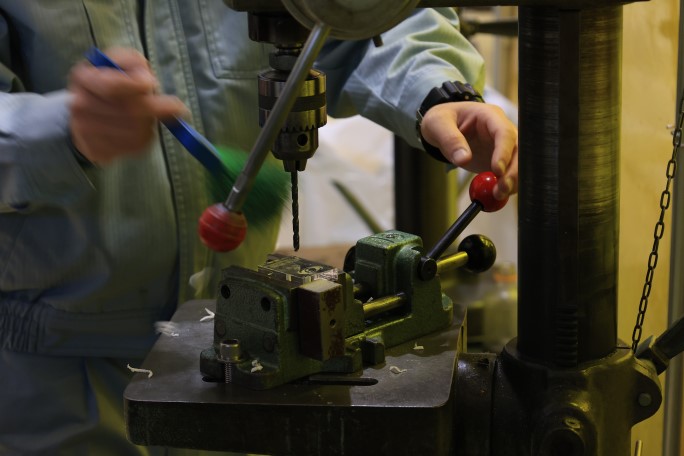Mechanical Engineering Center’s Masterpiece: 3D model of a protein related to H. pylori
The Mechanical Engineering Center is equipped with two types of 3D printers: one is an inkjet printer type that can create high-precision models. The other is a fused deposition modeling type (FDM type shown in Figure 1), which can use a variety of materials and colors.
The Institute of Materials Structure Science in KEK is currently holding an exhibition called “POP into Science” on the 3rd floor of tonarie CREO near Tsukuba Station, where research results about H. pylori bacteria are introduced (Fig.2).
In order to show how the proteins in the mucosal cells of the stomach interact with protein CagA produced by both East Asian and European types of H. pylori, 3D models were made by using the FDM type 3D printer at the MEC, which can be touched and understood easily (Fig.3).
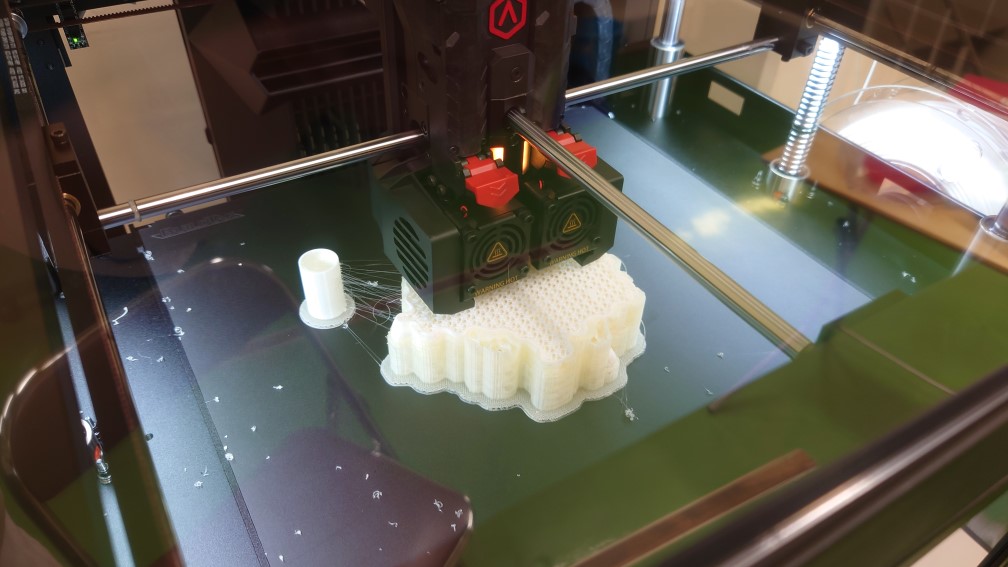
Fig.1 FDM (Fused Deposition Modeling) type 3D printer
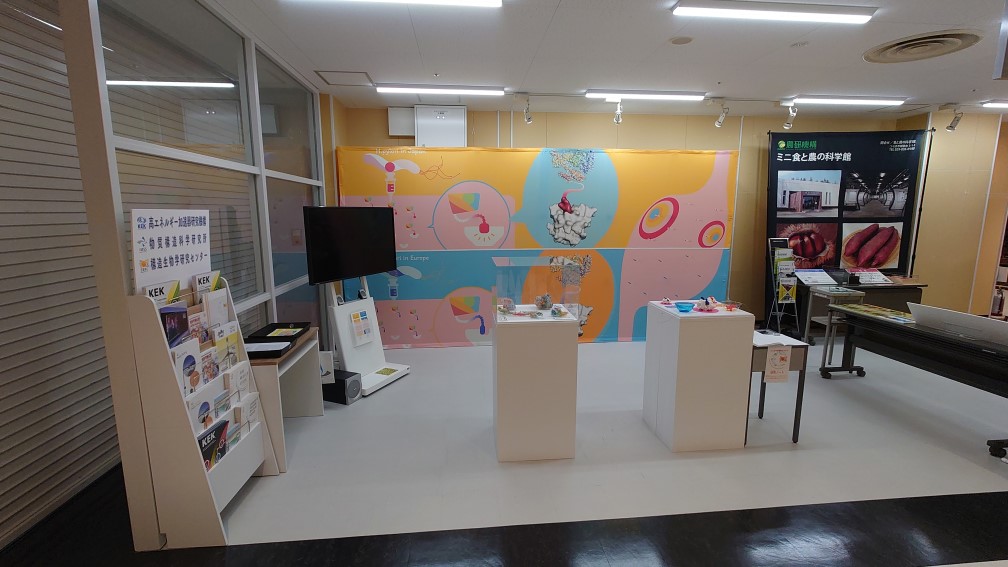
Fig.2 Exhibition of IMSS in KEK on the 3rd floor of tonarie CREO
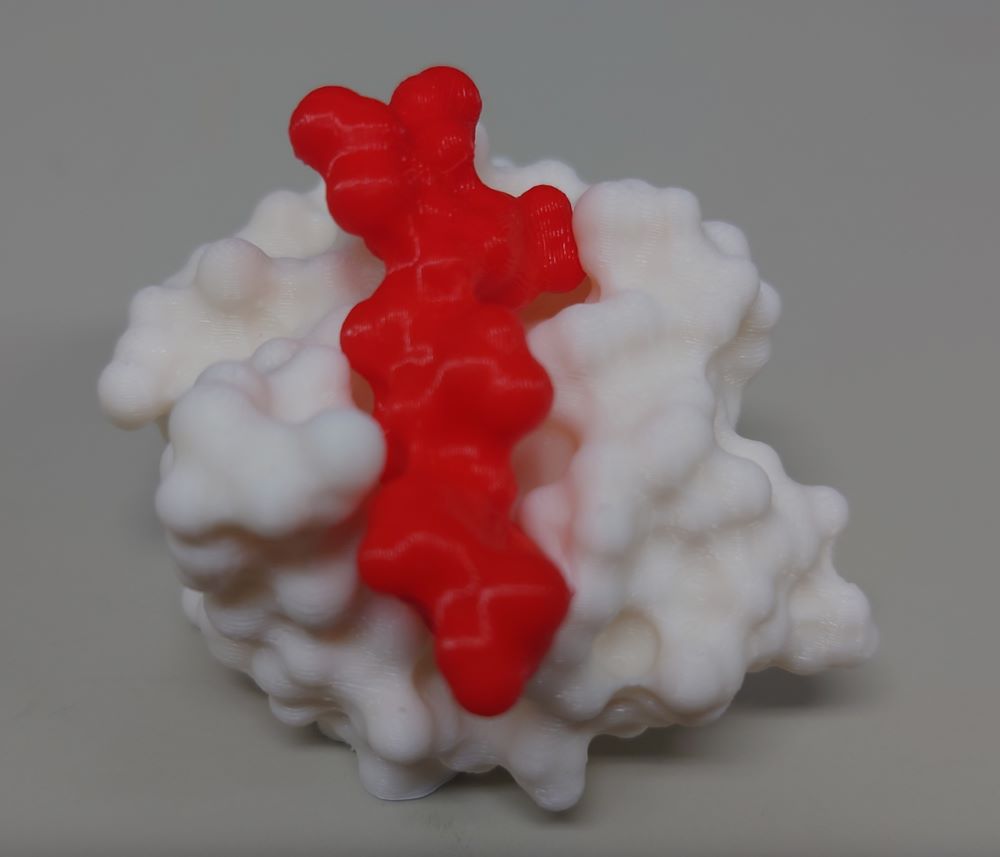
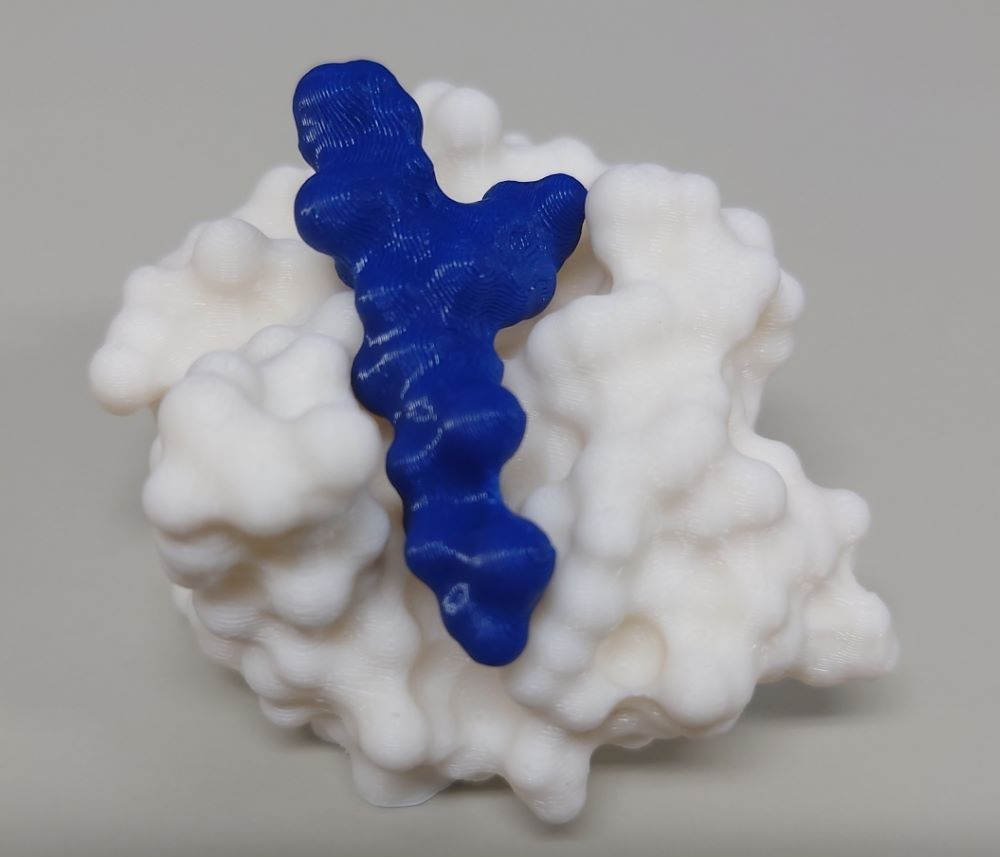
Fig.3 Model of protein in the mucosal cells of the stomach (white) and part of the protein CagA produced by H. pylori (red: East Asian type and blue: European type)

